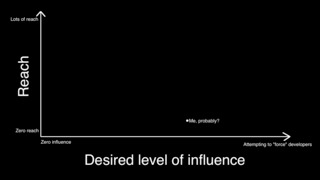
Hey Giant Bomb! I'm Austin Walker. We've met in video form, I've spoken to you on a couple of episodes of the Beastcast, and maybe you've read some of my news posts over the last week. What you may or may not have seen is that over the weekend, I wrote a couple of blog posts in the community section of the site: First, one about The Witcher, Race, and Historicity, and second, a post expanding on some of the ideas in the first while simultaneously responding to some of the comments and discussions from the community.
These posts were written as sort of short, off the cuff contributions to an ongoing conversation that Tauriq Moosa really kicked off with a piece titled "Colorblind: On Witcher 3, Rust, and gaming's race problem," which netted him a lot of heat–both positive and negative. Thankfully, while there were some outliers (and there always are), most of the debate in the comment sections of my blog posts was civil and engaged. As I said in the second post, that’s really exciting to me! I love seeing people develop and clarify their thoughts–even when those thoughts aren’t ones I necessarily agree with.
But there is one line of thought that I’ve seen a lot of over the last few days which isn’t a refined argument so much as a big, club-like assault. It goes like this: “No one should be forced into changing their games just because you want them to.” I’ve seen this in the comments, in my Tumblr’s ask box, on Twitter, and in the few threads on Reddit and NeoGAF. There are variations on it that use words other than “force,” but they almost always remain words adjacent to coercion: “Make,” “demand,” “order,” “dictate.”
When I see this, something bubbles up in me that wants to immediately shout back a response: “Come. On. I’m not forcing anyone to do anything!” But I know that this sort of response doesn’t get us anywhere. It hitches itself to a binary of “forced” vs “free” while in reality things are a lot more complex than that. The knee jerk response also misses an opportunity to engage with that specific issue: What does it mean when a writer criticizes a work?
And I’m writing this here, as an article, instead of in another blog post because this isn’t just about a single game like The Witcher 3, nor is it about just a single issue, like race. This applies to the sort of work many people like me do in the sphere of games criticism, whether we’re writing about issues of representation or level design, about 200 hour RPGs or two hour #AltGame experiments. I’m also writing it for a more strategic, selfish reason: Because it’ll give me something to point at every time someone accuses me of “trying to force a developer” to do something.
A Spectrum of Influence
So, what if instead of thinking about all of this in terms of a binary relationship (either a critic forces someone to do something or they don’t), we thought about this on a spectrum. On one end of the spectrum is absolute disconnect from influence: A writer pens long form essays about how developers should always do whatever they want. On the other end of the spectrum is critical work demanding that devs actually be “forced” to do things. But most critique exists in between those two extremes.
What does “in between” look like? Well, there's a range.
Still way over on the “force” side of the spectrum, a critic could call for a sort of “prohibitive” legislation. That is, a call to make something a creator does illegal or less-legal. Whether it’s because of concern over content, an interest in addressing labor conditions or market concerns, or a desire to address de facto censorship or discrimination, media critics have definitely spent some time arguing for the need of government involvement in the entertainment industries. Any time a writer says “this game and games like this should be banned,” or “laws should be put into place to make it illegal to use these slurs in the workplace,” or “employing overseas workers should require the company to pay an additional tax,“ that's a what I'm calling prohibitive legislation. These all exist on their own spectrum too: Banning something outright is a lot different than limiting its availability or putting an extra cost on exhibition or distribution, right?
But… I don’t think this is what’s happening when writers like me write about The Witcher 3 and race, or when critics take Rockstar to task over transphobia, or when Jeff grumbles about QTEs. No one is actually calling for governmental bans, here, right?
So, a little further away from the extreme of “forcing” a dev to do something is arguing for action or incentives that would encourage them to act differently. Let's call these "incentive" legislation. Here, think about tax credits or media funds built to support to creators that meet certain requirements, like employing a diverse range of employees, working in a certain medium, or producing a work that is a “public good” because it deals with history, education, or some other interest. You’ll see critics calling for things like this sometimes, but it’s not common in our little corner of the world; I'm pretty sure it’s not a thing I’ve ever done (though I'm not fundamentally opposed).
At about this same level of “attempted influence” would be calls for community or consumer organization. This would include both boycott groups aiming to limit the purchase of a specific product, brand, or category of good, and groups organized to support a product, like the Browncoats who sent letter after letter to Fox, begging them to bring back Firefly. This isn’t the same as calling for a legal ban or incentive, since it requires retailers, exhibitors, and other consumers to respond to the consumer action. But it still happens, as was the case this year when Target Australia pulled Grand Theft Auto V from store shelves after getting pressure from consumers.
But, again, in general, this isn’t the sort of critique we see in our sphere of bloggers, critics, and reviewers. Instead, what we see is something more in the middle of the spectrum. We write about games we love with enthusiasm and joy, and maybe we hope that it sells well enough that we’ll see a sequel–but we don’t tend to organize fan-groups. We take apart broken games with careful precision so as to make our readers aware of the quality of the product–but it’s rare that you see a game reviewer organize a boycott or put together a fan group.
Finally, there's the center of the spectrum: The sort of critical writing that makes an appeal to consumers, developers, and publishers. There are lots of different sorts of appeals. Sometimes you reference the market ("The controls for other Shooters are just so much more refined...") and sometimes you address stated developer intention ("In interviews, the lead writer said that X, but maaaaan, is it ever Y"). And sometimes this writing appeals to the empathy of the reader, and to their knowledge of the larger context. This is every time we say "I totally fell apart when that Chocobo died," or "This game's depiction of sexual violence was fetishistic and uncomfortable."
For my money, this is where most of the evaluative writing about games is on the "influence" spectrum. And yes, at least some of us hope that developers will see our critiques and take them into consideration. They’ll say “God, yeah, Destiny really does need more content,” or “Damn, yeah, actually we did fumble the depiction of women in this one.” Or maybe they’ll “decide how to address the white savior trope.” That one is a real quote, from Far Cry 4 narrative director Mark Thompson, who explained what he learned from Far Cry 3 and the critical response to it in a fantastic interview with Game Informer.
Were Thompson and company “forced” to make that change? Or did they consider the critiques issued to the previous game and decide how to address them? One of the hidden flaws of the “critics try to force developers to do things” line of argument is that it ignores that developers are people who can make up their own minds. So long as there isn’t threat of ban or boycott, they can internalize the critiques they think make sense and discard the rest, just like any reader can.
And what's beyond this sort of "I hope the developer takes my advice" level of desired influence? Well... Here’s the thing: It’s actually really hard to imagine critical work that exists further towards “no influence.” After all, even the writer who says “keep doing what you’ve been doing” is “influencing” the developer, since in reaffirming the work a developer has released it may convince a wavering dev to stick to their guns. The only thing I can really imagine in this space is non-evaluative recaps and summaries–but those aren't exactly critical.
So when I look closely at the arguments that say “don’t try to influence devs,” what I end up seeing more often than not is “don’t try to influence the devs in this one way.” It's not wholly dissimilar from those who say they want government to get out of the way of business, only to then also insist that regulations be put in place to protect some corporations and to incentivize industry-wide innovation. In both cases, “freedom” is held up as sacrosanct and “intervention” is positioned as a boogeyman. In reality the two are never wholly separate, and what’s really desired is a certain sort of intervention, just one that is so aligned with the status quo that it quietly fades into the background and feels "normal."
So we're left with a lot of writing in the "middle" of the spectrum, the occasional piece that tries to exert more influence, and almost none that attempt no influence at all. Like all attempts to categorize writing, this one is bound to have flaws. That’s okay, because so long as we recognize it as a nice little analytical tool and not as a Truth From Heaven, we’ll be able to catch the problems as they come up. Still, there is one glaring issue with it that I want to address.
"Americans, Big Guns, and Strident Views"

There is very specific version of the “don’t force developers” argument that has been coming around a lot in the discussion of The Witcher 3. Here’s an example, which I got as an anonymous “ask” on Tumblr today:
Why should any culture be forced to homogenize their media in order to appease all other cultures? More tangibly, why should one of the most impoverished races in history (the Polish) pander to American cultural norms? I can't help but point out that this is why the world hates Americans in general, which is why this Witcher business is getting so much press. People are just sick of americans with their big guns and strident views pushing themselves into every corner of the world.
I’m actually fairly sympathetic to this argument, which is why I’ve attempted to discuss The Witcher’s Polish and Slavic heritage with care. I know that it comes from a culture that is not mine, and I know that lots of folks from the US–myself included–have the capacity to forget how big and varied the world outside our borders.
Part of the reason that I know that is because I just spent the last four years in Canada, which has laws made specifically to insulate itself from American cultural imperialism. One key part of this set of regulations is the Canadian Radio-Television and Telecommunications Commission's “Canadian Content” (or “CanCon”) requirements. These rules govern the required amounts of “Canadian” music and television that must be broadcast by networks and radio stations, and they go on to define what exactly “Canadian” means in terms of production, content, and distribution. These rules exist because (the argument goes), if they didn’t, then Canadian television and radio would be filled with American content, putting Canadians out of jobs and diluting the unique cultural heritage of the country.

(I don’t want to go into a deep dive on Canadian policy, because listen, that gets real dry real quick. But it is interesting to note that even with these rules in place, American companies find ways to reach Canadian audiences and duck CanCon regulations. This led to a big, weird blow up back in the fall where Google and Netflix were officially ignored during a set of major public hearings around CanCon laws and digital media. It's all super interesting if you're a weird nerd like me.)
The point is, I understand where this argument is coming from. I understand how American media sensibilities have already spread globally, influencing how folks across the world make things. I understand that this can sometimes (directly or indirectly) lead to the recession of important customs of cultures.
But in the same way that different cultures around the world aren’t homogenous (and are more beautiful for it), Americans are similarly varied and complex. And one key way in which we're different is the degree of cultural reach we have. So, let’s add another axis to that spectrum of influence, let’s call it “reach.” Some elements of American culture have lots of reach. Major media corporations, celebrities, and the very largest of large name writers reach worldwide audiences and (without ill intent) carry their aesthetic, political, and cultural ideas with them. But the output of every American creator doesn’t carry that same reach.

Said plainly: There are absolutely broad, American cultural norms that have been spread around the world through a dominant, global media industry. I’m just not sure that critical media analysis is part of that set of cultural norms.
It’s certainly not uniquely American: The greatest influences on my thinking and writing include Algerian, Australian, British, Canadian, Danish, French, Indian, and Jamaican writers, many of which tackle issues of race, culture, gender, politics, media, and play in ways distinctly non-American. And, yes, my own cultural reach as an American critic is definitely larger than it was just a year ago, but let’s be real: I do okay, but I'm no Mickey Mouse.
Waiting for "The Right Time"
Coupled with the argument that Americans should “butt out” of this topic is another argument that pops up a lot: “I agree with the call for diversity generally, but The Witcher 3 isn’t the right target for critique.” Well, as someone who has written about games and race a few times over the last few years, I’ve gotten used to that defense. As are many of the others who’ve tried to tackle difficult issues in the games they love and care about.
When we note that a game is filled with slurs and offensive caricatures, we’re told that we should be less offended because, hey, it's just satire. When we point out how a game leverages a history of racialized, coded imagery to elicit fear, people link us to wiki articles and explain the deep lore as justification. When a game made me spend a half hour of my real time every day just to keep my skin color on point, I was told that, no no, of course games have a problem with race, but why did I have to go after Animal Crossing?

You know that joke Vinny tells about having a baby? "If you wait until you're ready, you'll never have a baby." Well if we wait until the “perfect time” to tackle these issues, nothing will ever get done.
Yes, writing about diversity and The Witcher 3 is especially complicated because of the perspectives involved. Polish history is filled with outsider groups minimizing, controlling, ignoring, and erasing the nation's unique ethnic and cultural character. At the same time, people of color in white-dominant spaces have struggled to develop the vocabularies of critical race studies and post-colonialism only to then be told to mind their tone. These things mix here in an especially volatile way. But this doesn't mean that we should shy away from addressing it, afraid of stepping on toes, afraid of what we don't know. It means we step forward in good faith, with sympathy for the other perspective, and with a willingness to incorporate the complexities of someone else's view.
Real talk: I'm never kidding when I say that this stuff is complicated. Trying to unwrap this stuff is fucking brutal. And because issues like racism are systemic and cultural (and more than just some bad, violent men in white hoods), it's difficult to tackle them. The best we can do is address them honestly, actually engage with the tough stuff, and resist the urge to boil things down into simple binaries. Sometimes that means repeating ourselves, again and again: “No, I don’t think CD Projekt Red is racist; Yes, I still wish there were some people of color in the game. Yes, I still like The Witcher 3 a lot. No, those three statements do not contradict each other.”
Those of us who write about things like race, gender, class, and sexuality in games do so because we fucking love games. And you know, most of us actually spend the majority of our time in any given year writing about weapon design, death mechanics, art style, game preservation, "virtual worlds," weird little import gems, explosive and private narrative experiments, rad Japanese robots, and the billion other things that make our favorite medium so great.
And sometimes, we want to take the things we love seriously enough to offer analysis and critique that goes beyond "I like this" or "I don't like that." We want to figure out how a game might fit in a larger cultural context or try to communicate how it fit just so into our lives. We often see the faults in these games we love because we're so close to them. And sometimes, pointing out those flaws doesn't mean we love them any less. Even our most brutal critiques–the ones that come closest to head shaking and dismissal–are rooted in a broader love for the medium.
I know I'm dropping "we" a lot here, I know. And I can't speak for everyone, obviously, so I'll say it like this: I write about all of these things because...
Well, because besides wanting to engage with my readers and help them work through their own opinions, besides hoping to “influence” game makers with my critique, there is a rumbling something, an emotional drive that fuels my desire to write. I write because I cannot but write. Because when I wake up and see that someone asked me what I thought about game X, the cogs start moving all on their own. Pieces like this one drill themselves itself into my head, dragging themselves into existence through broad ideas and little phrases. I write not (only) because I want to change the world, but because I am compelled to get words on the page.
I’m grateful that so many of you here have been so supportive of the blog posts that I’ve written since joining the site. It's because of that support that I feel comfortable putting myself out there like this, right on the main page of the site. I promise I'll be doing more community-focused, quick-take blogging in the future too.
In any case I hope you'll enjoy diving into all the complicated stuff in the future. All I can do is promise to be rigorous, honest, and critical, and hope that you’ll continue doing the same.